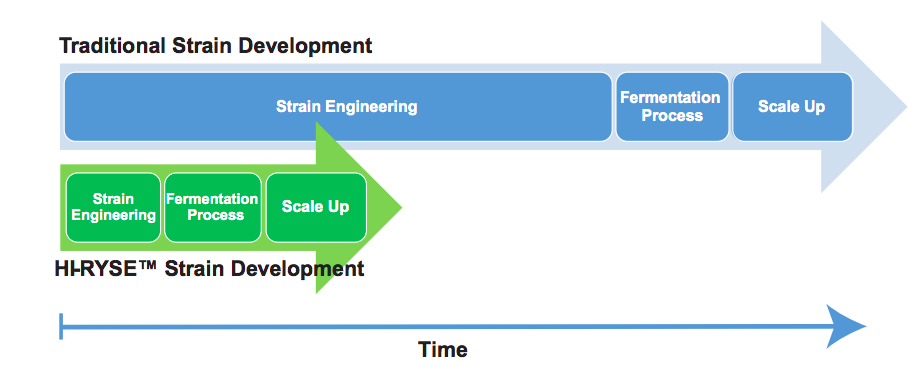Hello blog readers. I am currently in San Diego attending INFOCAST’s Methane Bioengineering Summit (#MethaneSummit) yesterday, and the Sustainability Chemicals (#INFOCASTBio) summit today and tomorrow. I hope you’ve been following my tweets on it.
In the meantime, let me write up a brief post about this news from Amyris. The company recently announced that it has developed a yeast strain ready to produce a new fragrance molecule at commercial scale in less than 12 months from the start of strain engineering, and plans to begin manufacturing of this molecule in September at its Brotas production facility.
The engineered strain was designed, engineered, optimized and scaled for industrial fermentation using Amyris’s synthetic biology platform, showcasing the company’s proprietary HI-RYSE™ (Hyper-Integration for Rapid Yeast Strain Engineering) technology.
According to Amyris, their HI-RYSE technology has enabled the company to deliver this fragrance molecule to its collaboration partner in half the time expected and at a lower production cost than planned. This is a major breakthrough that will enable the company to accelerate the commercialization of the 17 molecules currently under contract for development in its collaboration portfolio. At maturity, Amyris expect each of these molecules to deliver $30 million to $40 million of annual product revenue at approximately a 60% gross margin.
So what is this HI-RYSE™ Technology?
Core to Amyris’s industrial synthetic biology platform is its HI-RYSE Genome Engineering Technology, (United States Patent No. 8,685,737 “Methods for Genomic Modification”). I don’t have that much understanding with the technical aspects of genetic modification of organisms but according to the press release, the HI-RYSE technology allows implementations of many new DNA designs simultaneously where before construction of production strains was limited to integrating pathway genes one DNA (locus) at a time.
HI-RYSE now enables single step conversion of a highly engineered and refined strain making one product directly into a high-production strain of a different product. To get to know more how genomic modification works, here is a great video for newbies like me.




